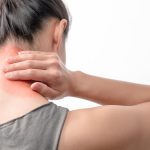Fasting for medical tests
Why do I need to fast before a test?
If you are having a medical test, your doctor may ask you to fast. For some tests, fasting beforehand gives a more accurate result. For other tests, you need to fast for safety reasons. Ask your doctor how to prepare for your test.
What can I eat and drink while I’m fasting?
You can’t eat or drink anything. You can’t drink fruit juice, cordial, soft drink, coffee, tea or milk, and you can’t eat or suck on lollies or chewing gum. Ask your doctor if you can drink water before your test.
Which tests do I need to fast for?
Blood tests
You will usually have a fasting blood test in the morning after you have fasted for 10 to 12 hours (no less than 8 hours and no more than 16 hours).
Tests under anaesthetic
If you are having sedation or a general anaesthetic for a test, you will need to fast beforehand. This lowers your risk of serious complications. Your anaesthetist will tell you when to stop eating and drinking.
Adults can usually have small amounts of clear fluids up to 2 hours before. Your anaesthetist will tell you when to stop eating and drinking.
Clear fluids include water, fruit juice without pulp, clear cordial and black tea and coffee. You can’t have jelly or milk.
There are different recommendations for babies and children. Ask your anaesthetist what and when your child can drink.
Colonoscopy
Fasting before a colonoscopy is important because:
- you will be sedated
- fasting helps clear out your bowel so your doctor can examine you properly
On the day before a colonoscopy, you will need to drink at least 3 litres of clear fluids. You won’t be allowed to eat food. Before the procedure, you will take a medicine to empty your bowel. You will need to fast for at least 2 hours before the procedure.
If you have diabetes, you may need to be monitored in hospital for this process. Ask your doctor what to drink and if you should take your medicines.
Gastroscopy
You must not eat or drink (including water) for 6 hours before a gastroscopy. This gives your doctor a clear view to examine your stomach and intestine and lowers your risk of complications from sedation. Your doctor will tell you what time to start fasting.
Can I take my medicines when I’m fasting?
Keep taking your medicines as usual before a test, unless your doctor instructs you otherwise. Some medicines need to be stopped, so check with your doctor if you usually take medicines. Be sure to tell your doctor everything you are taking, including over-the-counter and complementary medicines.
Can I fast if I have diabetes?
Fasting with diabetes can cause complications. If you have diabetes and you need to fast for a test, talk to your doctor beforehand. Ask ahead for written instructions about what to do if you have a hypoglycaemic episode (a ‘hypo’) while you’re fasting.
Some recommendations are:
- Check your blood sugar every hour, or more often if your level is too high or too low.
- You may need to reduce your insulin dose or skip oral medicines.
- Drink water when you are allowed to.
- You may need to drink clear fluids containing sugar if your blood sugar is low.
- Look out for signs of a ‘hypo’ and seek medical help immediately if your blood sugar doesn’t improve.


